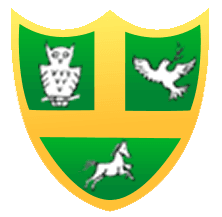Curriculum Intent Statement
Our curriculum is designed to meet and address the needs of the children who attend our school. It is ambitious, inclusive, broad and balanced. It is designed to provide a progression of knowledge, skills and vocabulary with clear end points, at the end of key phases in school. Assessment is used effectively to adapt the curriculum to the individual needs of the children. The threads, ‘Be ready, Be Respectful and Be Safe,’ provide the intent of our curriculum design and are implemented throughout each subject.
What do we want to develop in our children at Kirklevington? |
What does this look like in our School? |
Be Ready |
Be Ambitious – aim high, exposure to experts and role models, challenge provided in teaching knowledge, skills and vocabulary |
- All children are encouraged to have high aspirations and to be active citizens – through roles in school, positive mind-set activities, and carefully chosen resources
- Experts and role models identified in the curriculum, enhanced by visits and trips, fostering their interests and a ‘can do’ attitude
- Our inclusive curriculum progressively introduces knowledge, skills and vocabulary, with clear end points and expectations
- Vocabulary is defined and developed including through word power activities
- Pupil voice is actively encouraged, lessons encourage children to be aspirational and curiosity is encouraged and developed
- Children are articulate with the vocabulary they use
|
|
Be Independent – Prepared for now, the next steps and for life |
- Children have what they need to learn and can access this themselves
- Children have classroom roles and are encouraged to participate
- Over time, children develop in their ability to work independently and organise themselves
- Assessment shows children have gained the knowledge and skills needed for the next lesson/topic/year/secondary education
- Children gain opportunities to volunteer and learn about charity work, including helping others
- Children have opportunities to make choices and decisions
- Appropriate to age, children collect own resources, change own books
- Children are encouraged to ‘try’ before adults support them and we praise effort and success
- Children are encouraged to think independently and their opinions are recognised through purposeful questioning
|
|
Be Resilient – confident, develop self-regulation, well-being strategies and be problem solvers |
- Children are taught about mental health and well-being including in PSHE and RSE lessons, nurturing self-care, calming techniques and a positive self-view
- Children develop confidence through achievements including through exercise, sport and PE
- Self-regulation and understanding emotions is an integral part of daily school life
- School is a safe place where children are encouraged to express their worries and ask for help
- Children are supported to develop skills to resolve things under their control
- Children are taught that change is a part of life and about setting small goals to achieve big things
- Children have opportunities to solve problems and articulate their reasoning
|
|
Be Respectful |
Respectful behaviours – towards ourselves, our peers and others |
- Children demonstrate respectful behaviour in classrooms and in and around school
- Adults and children are positive role models for each other – everyone is respected regardless of their behaviour
- Adults, children and their peers are polite towards each other and are caring, demonstrating a strong moral purpose and modelling social skills
- Anti-bullying work and the PSHE/RSE curriculum teaches children about respect
|
|
Respect rights -RRSA – Understand our rights, how they affect our lives and rights of children globally, celebrating differences |
- Unicef RRSA work is a thread throughout the curriculum and the School has a Gold Level award
- Children learn about children’s rights, on a local and global level
- Children understand the purpose of the charity work that the school does
- Children learn about how we are the same and how we are different and celebrate diversity
- RE curriculum teaches about different faiths and children learn about different cultures
|
|
Respect the environment – our school, the community and the wider world |
- Children are encouraged to tidy up after themselves, take on school roles to support the school and use equipment correctly
- Children demonstrate respect when attending trips and visits in the local community and beyond
- Children learn about relevant and current events, locally and globally, including environmental issues such as climate change.
|
|
Be Safe |
Keep ourselves safe – know how to report concerns and worries, including with friendships |
- School is a safe environment where children know how to report worries and concerns.
- Children are taught how to keep themselves safe throughout the curriculum including: Anti-bullying and friendship; fire safety; crucial crew; ‘bikeability’; road safety, keeping healthy and taking care with medicines.
- The PSHE, RSE and Science curriculum support learning about keeping safe.
|
|
Being safe in the school and community – Knowledge about, our families, the school, the local context and wider world |
- Children know about ways to keep everyone safe, including through tidy environments, cloakrooms and school grounds
- Children learn about relevant issues that affect the local community, including the dangers of electricity, ‘stranger danger’ and this is adapted by current events
- Children who may be vulnerable are identified and we work with our parents and carers
- Children learn about people who help us, including emergency services and the NHS
|
|
Being safe online –Using technology for the right reasons and knowing its limitations |
- The IT curriculum is progressive and meets the needs of the children at Kirklevington, many of whom have access to personal devices
- Children are taught about online safety, online bullying and how to use technology in a safe way
- Children follow school rules when using technology
- Children know who to report any worries and concerns to
|

